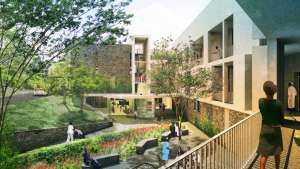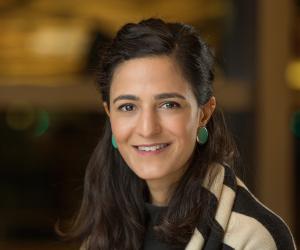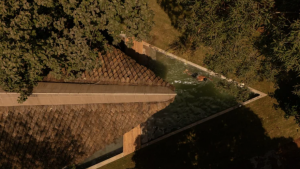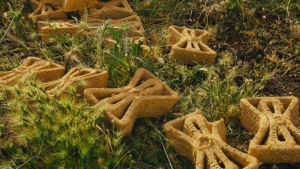From the Series
For Design Indaba 2016, Safia Qureshi and Maxwell Mutanda of London, Harare and Cape Town-based Studio [D] Tale talked about “Breaking the Echo Chamber”, a challenge the studio set for its formative years, where they questioned all existing notions of design and architecture.
“We wanted to meet new people, we wanted to engage with difference communities, we wanted to extend our role as architects – because for us that’s not literal, we are the custodians of our cities and our towns. It can start from a small-scale object all the way to urban design.”
The studio's first task was to go out into the world and observe, record, research, gain insights, build teams of partners and collaborators, and innovate. This went against all the traditional methods they were taught as architects: instead, the focus was to discover opportunities and put them to work, rather than wait for work to come to us.
Sharing examples of their work, Mutanda and Qureshi talked about looking for ways they could innovate around the needs of the informal vendors and informal taxi cars in Harare, as well as looking at ways to turn linear waste streams into circular ones in megacities like London.
For the informal vendors, Studio [D] Tale created ways for the vendors to enhance and customise their self-built structures. Shade umbrellas double up as rainwater collectors and, with additional solar panels, can also be used as a point of free electricity.
The studio also mapped out the routes of the informal taxi cars that move around Zimbabwe’s capital city, adding information on points of interest and route-intersection points. In total they charted 58 unique routes.
“Why is the informal world not so well represented in the information age?” asks Mutanda. “We really believe in a design activism and we want to take back the roles that we’ve surrendered to the city or to industry and put it in the hands of people.”
Qureshi went on to explain the most recent product innovations to come out of the studio. These include Tectyle, a textile with inbuilt technologies that can be used to benefit both relief agencies and big organisations in the hospitality sector, and also Cupclub, a reusable cup for on-the-go coffees.
“How can we innovate towards something so simple?” says Qureshi. “Our role as architects and custodians of the city is to keep our cities clean.”
In London alone 2.5 billion disposable coffee cups are used everyday, which amounts to 1000 tonnes of rubbish and the production of 1.3 million tonnes of carbon dioxide. Qureshi looked at how to change this without changing the user experience and convenience of take away beverages. Clearly, something was going wrong with the recycling.
“Recycling companies main business model is to recycle waste,” says Qureshi. “They always require waste being there.”
The studio looked to the third world for inspiration and found that the roadside tea sellers in India used shared glass cups, which were washed and then reused and produced no waste stream, and decided to design a reusable, take-away coffee cup.
“Our big message really is to look at the mundane, look at the everyday, the quiet things that are happening. Look at reinventing the systems that are currently in existence because they all need innovation.”











